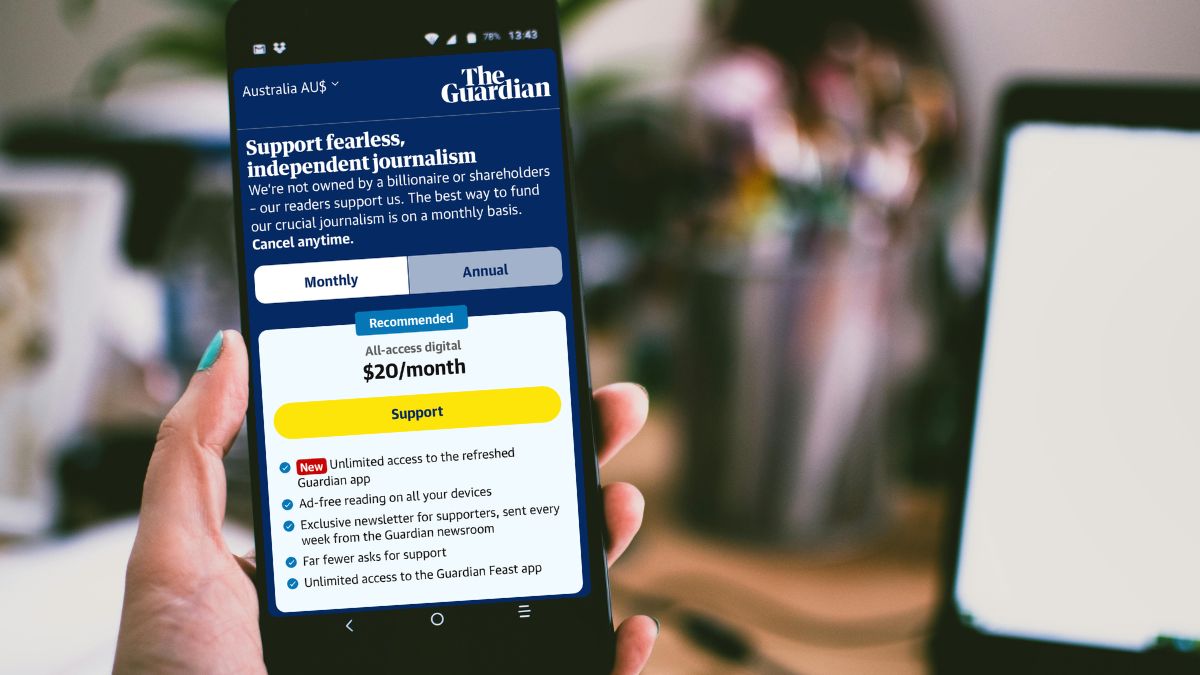Protections for public interest journalism and public health go hand-in-hand
Every month, PIJI brings you the latest on the public interest journalism sector at home and around the world.
Over the past few weeks, news media came under attack on multiple fronts, from physical violence by police on journalists in Los Angeles, to the possible implications of Canada walking back its digital services tax on the eve of its implementation.
Also in this issue, Croakey Health Media editor-in-chief Melissa Sweet shines a spotlight on the cost of the growing distance between journalists and decision-makers, and PIJI delves into how the Guardian is surviving as an independent media organisation despite little breathing room left by tech giants.
PIJI is an independent advocacy organisation. We appreciate your support. Please consider forwarding this newsletter to someone interested in the sustainability of public interest journalism and its importance to the survival of democracy.
Melissa Sweet: Protecting public interest journalism to protect public health
Over time, journalists’ access to policymakers has become increasingly restricted. But there is a cost when governments, agencies, and organisations focus on controlling the message and minimising authentic engagement.
The call for help that paid off for the Guardian, and what’s next
Facing a shaky future and seeing similar independents fall, merge, or erect paywalls to survive, the Guardian turned to its large global readership for aid almost a decade ago and has not looked back.
ICYMI: Industry updates
Australia
- The Australian Government appears to be holding firm on its planned News Bargaining Incentive despite trade threats from the US. Assistant Treasurer Daniel Mulino said the incentive, designed to get tech giants to negotiate commercial deals with local news publishers, remains a “key priority” and a consultation paper would be released soon.
- The future of Sky News Australia in regional broadcast markets is uncertain as a key transmission agreement is set to expire this week. Negotiations to extend the arrangement are ongoing with Network 10, which now holds the regional broadcast licences for large parts of eastern Australia.
- News Corp journalists were reportedly concerned after being trained to use an in-house AI tool called ‘NewsGPT’. Staff at the Australian, the Courier Mail and the Daily Telegraph said the tool enables them to generate articles with the persona of another writer or in a certain style. They are also reportedly set to be trained to use an AI tool which will edit and produce copy, boding ill for the future of subeditors.
- Antoinette Lattouf won her unlawful termination suit against the ABC after being fired for sharing a post from Human Rights Watch about Israel’s actions in Gaza. Although the judge found Lattouf’s post was “inconsiderate” of her employer, he also found the ABC’s actions breached the Fair Work Act and its own enterprise agreement.
The case highlights the precarious balance of on-duty impartiality and off-duty freedom to express political views, as well the pressure lobby groups and fellow news outlets can successfully exert on even a major organisation like the ABC.
Although the ABC’s actions have been widely criticised, the organisation’s journalists have been unflinching in their coverage of the case across the network, including the ABC’s news website, TV and audio products. - Ipsos data reveals some overseas outlets proved increasingly popular with Aussies recently, with the BBC coming 10th and The New York Times 13th in a ranking of the top 20 Australian news sites by audience reach. However, Australian outlets still made a good showing, with the ABC beating out news.com.au for first place.
- It is an end of an era at Network 10, with the final episode of The Project airing almost 16 years after its debut in a move impacting more than 50 jobs. It’s replacement, 10 News+, has promised a more serious approach, with a focus on deep dives and investigations. Perhaps indicating a broader shift in TV news, Nine also launched a longform current affairs and investigations unit.
- ABC made a similarly huge change to its show lineup, cutting Q+A after 18 years. In combination with further changes at the organisation, the result will include 40 redundancies and about 10 fixed contracts ending early.
- Nine committed to an 11 per cent increase to minimum freelancer rates, along with an annual reviews of rates and a seat at the table for freelancers to further discuss rates and conditions next year.
- LINA launched a ‘Newsroom Starter Kit‘; a free guide to help individuals and communities establish their own independent, community-focused news outlets.
Around the World
- In response to pressure from the US Trump administration, Canada halted its digital services tax the night before it was set to come into effect. The tax would have applied to both domestic and foreign tech companies, including US giants such as Amazon, Google, and Meta. Canada’s decision to rescind the tax – despite previously committing to hold strong – came just days after Donald Trump abruptly cut off trade talks and called the tax a “blatant attack”.
- In the US, a bill requiring big tech companies to compensate Oregon newsrooms for sharing local journalism failed to pass the state’s Senate.
- Several journalists were injured while covering protests against immigration raids in Los Angeles, with more than 30 cases resulting from police violence. These included Nine journalist Lauren Tomasi, who was filmed getting shot with a rubber bullet by an LAPD officer, along with the teargassing of ABC correspondent Lauren Day and her crew, and an ABC cameraman being shot in the chest with a “less lethal” bullet.
- Independent media outlets around the world are facing an unprecedented crisis, according to the Crisis in Journalism: The Impact of the US Government Funding Cuts on Global Media report. The report found the halt to US foreign aid led to outlet closures and hundreds of layoffs in countries like South Sudan, Afghanistan, Myanmar, and El Salvador.
- Reporters Without Borders condemned recent attacks on the press in Honduras. These allegedly include the murder of journalist Javier Antonio Hércules Salinas. At least 12 media outlets are currently facing legal complaints filed with the Public Prosecutor’s Office, with some outlets facing pressure from judicial authorities to reveal sources from public interest stories.
- Under the Journalism Science Alliance, the European Journalism Centre and the NOVA University of Lisbon are calling for project proposals with a focus on developing proper partnerships between the media and research institutions. Applications close on 4 August, 17:00 CEST.
- Journalists from Barbados, Grenada, and Trinidad and Tobago participated in a hackathon with a focus on disaster preparedness. The initiative is part of a broader effort to reinforce the role of public interest journalism in disaster risk reduction and climate resilience.
Have something to share? Submit content for review to info@piji.com.au

